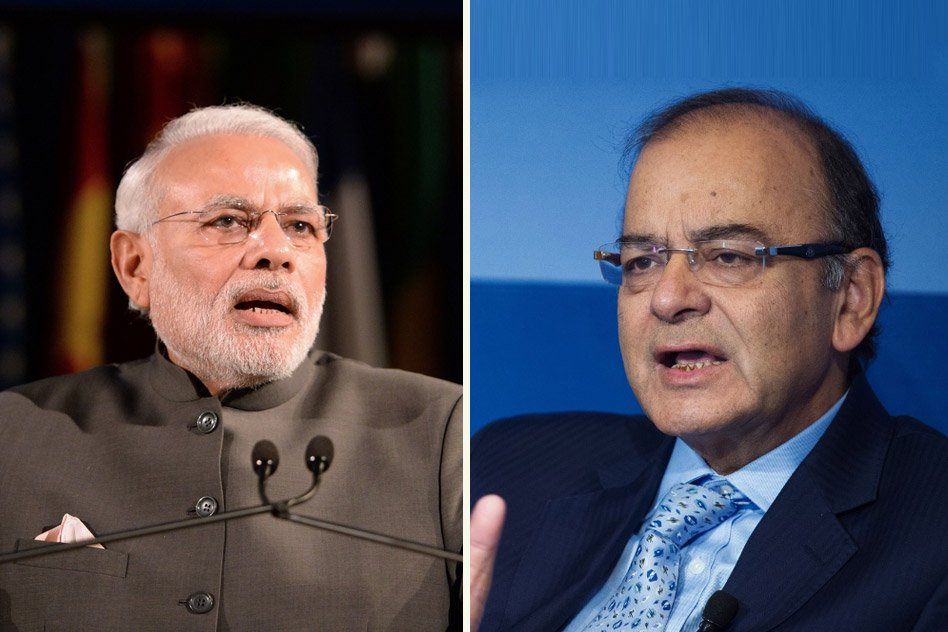Lok Sabha Rejects Recommendations By Rajya Sabha, Passes The Finance Bill, 2017
31 March 2017 9:00 AM GMT
Today, 31 March, the Lok Sabha rejected the recommendations of the Rajya Sabha on the Finance Bill, 2017, and passed it. (Owing to its status as a Money Bill, the Upper House has little say over passage of the Finance Bill.)
On 21 March, the Lok Sabha had passed 40 amendments through the Finance Bill, 2017. Some of the major changes include lowering the legal limit on cash transactions from Rs 3 lakh to Rs 2 lakh and making Aadhaar Card mandatory for filing Income Tax Returns (ITR) and even for applying for PAN Card and inducing sweeping changes to electoral funding in India.
The Finance Bill, 2017 is a controversial document, and has raised eyebrows across the political spectrum. From the manner of its passage to its far-reaching provisions, the Bill one of the most controversial legislations to be passed in the halls of the Lok Sabha in years. Its scope is extensive, its implications are enormous, its overreach is alarming. And yet, its knowledge among the masses is woefully constrained.
Key documents related to the Finance Bill, 2017
- Original draft;
- Final draft;
- The Finance Bill, 2017;
- Main amendments;
- The Lok Sabha’s arguments on the Bill;
- The Rajya Sabha’s arguments on the Bill.
This year’s Finance Bill is unique for four reasons
- It proposes massive changes in many areas;
- Its proposals are highly controversial and damaging;
- Its passage was riddled with questionable practices;
- It has received very little media coverage despite the above three points.
Key amendments
- The Bill effectively removes the cap that barred companies from donating more than 7.5% of their average net profit to a political party.
- It also removes the requirement that made it mandatory for a company to disclose the name of the party to which the donation has been made.
- Donation by corporates to electoral trusts would be only through account payee cheque, bank draft or electronic transfer. However, the Bill also amends the Representation of People’s Act (which governs elections in India) to ensure that electoral bonds are anonymous.
- Mandating the Aadhaar Card for filing ITR and for applying for PAN Card. This comes in quick succession after government’s move to make Aadhaar Card mandatory for availing services like free gas connections for women Below Poverty Line, receiving cash awards, and pensions for the defence personnel. According to the Government, Aadhaar Card is being made compulsory in a bid to bring in more transparency in the system.
- The legal limit on cash transaction reduced from Rs 3 lakh (as announced earlier) to an amount of Rs 2 lakh. In a tweet, Revenue Secretary Hasmukh Adhia said that violation of this rule would attract penalty equivalent to the value of the transaction.
- The IT Act, 1962, previously granted the authorities the right to seize only those assets that formed the subject of the raid or were in the books of accounts. Meaning, a baseless raid did not cause you any loss of property. But not anymore. The new legislations provide taxmen with the authority to provisionally seize any property of the person being raided for the vague reason – “interest of the revenue”. The property could be your personal asset or your business asset, thus rendering you bankrupt. A clause added to this provision is that the provisional seizure is only for six months. The legislation provides no provisions on how the seized property will be safeguarded during those six months, the procedure of return of the property to the owner, or what needs to be done if the property is not returned or is damaged.
- Other amendments related to Employees Provident Fund, Smuggling and Foreign Exchange Act, TRAI Act and Information Technology Act were proposed and passed.
The Bill can be read in its entirety here.
Main issues with the Finance Bill, 2017
- Most of the amendments were introduced in the last minute;
- The amendments’ purview and scope were unwarranted;
- The status of the Finance Bill being a Money Bill was exploited;
- The debate over the 40 amendments was limited and occurred over the course of 48 hours, with many interruptions in between;
- The amendments were not shared with many MPs.
Most of the amendments of the Finance Bill are set to come into effect on 1 July 2017. However, some of the provisions are slated to take effect from April 2017.
Read more about the Finance Bill, 2017
- Centre Makes 40 Amendments To Finance Bill 2017: Cash Transactions Reduced To Rs 2 Lakh, Aadhaar Card Mandatory, And More.
- Finance Bill, 2017 Is A Nightmare For Even An Honest, Taxpaying Citizen: Know Why
- Govt. Set To Remove Cap On Donations To Political Parties: We Are Repeating America’s Huge Mistake
- The Manner In Which The Government Amended The Finance Bill Was An Insult To Democracy
 All section
All section














